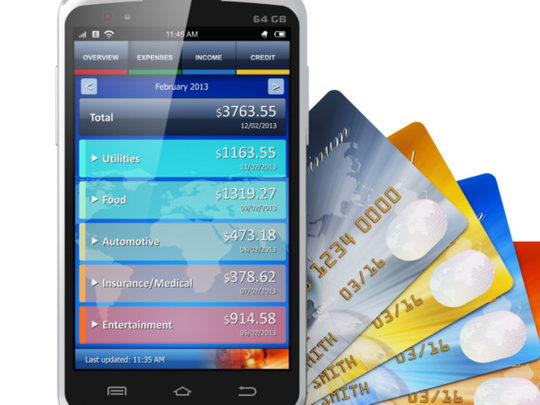
Online shopping once referred to buying from the convenience of your home on your computer or laptop. Today you can do it in the middle of a meeting or while you wait in traffic, via your smartphone.
Since smartphones are becoming more important everyday, the question we’re left with is: Can we eventually ditch our wallets, cards and hard cash to solely shop through our smartphones?
Rising popularity
Swapping your laptop for your smartphone is understandable, but when you begin to swap the physical shopping experience for that with your smartphone, things get interesting.
A study by online and multichannel business research specialist eDigitalResearch and Portaltech Reply, released earlier this month, says 66 per cent of smartphone owners are purchasing products direct from their mobiles. This figure has more than doubled since 2010. Furthermore, 32 per cent of smartphone shoppers are using their smartphones to make a purchase on a weekly basis, a number that has almost doubled in the past 12 months, with an additional 25 per cent now purchasing items every month.
In 2011, PayPal noticed that smartphones accounted for $4 billion (about Dh14.6 billion) on $145 billion worth of transactions. Last year, it moved to $14 billion and this year PayPal expects it to grow to $20 billion.“Last year mobile represented 10 per cent of total sales at PayPal and we bet that by 2015, it could go up to 50 per cent,” says Laurent Wakim, Head of Business Development Mena, PayPal.
Steve Hamilton-Clark, CEO, TNS Mena, predicts that usage will continue to grow as more people gain access to smartphones and mobile internet. “Online shopping and research is a widespread practice for many consumers through laptops/tablets, so moving this behaviour onto the smartphone becomes second-nature. The mobile also has the benefit of being with the consumer all the time,” he says.
Safe deals
Wakim believes that smartphones will move faster in the region, particularly in the UAE since smartphone penetration is higher than most countries.
Online shopping and smartphones raise numerous issues in terms of security individually, but Wakim says they do not see any challenges from a security perspective. “You have the same solutions. All security protocols are comparable to what you have on the computer. As long as you use the laptop from the same internet there is no difference.”
In terms of smartphone security while shopping online, Hamilton-Clark believes it is the brand’s and retailer’s responsibility with the support of other players in the payment ecosystem such as banks, payment card and payment processing companies, etc. “Brands need to ensure that their online shopping services are safe, and then need to communicate the security aspects to consumers,” he says.
Wakim says that this trend is just the beginning and will evolve into much more in the future. He explains that geo-localisation and geo-marketing will be extremely important as brands and retailers will sense that you are around the store and send you notifications of promotions enticing you to enter the store.
“We have a product in the US where you can enter a store and check into that store on your PayPal application. When you complete your shopping and approach the cashier, a picture of you flashes on his screen and you are billed automatically. We also have something similar in France with McDonalds. You pay with your PayPal account and a receipt shows up on your smartphone. You then go to your nearest McDonalds, scan your mobile and collect your food.”
With the technology available today, the possibilities are endless. Whether we will eventually end up ditching our wallets to shop from our smartphones remains to be seen. As Hamilton-Clark sums it up, “When other players in the payment ecosystem start to support this trend along with banks, brands and retailers, maybe we will.”













